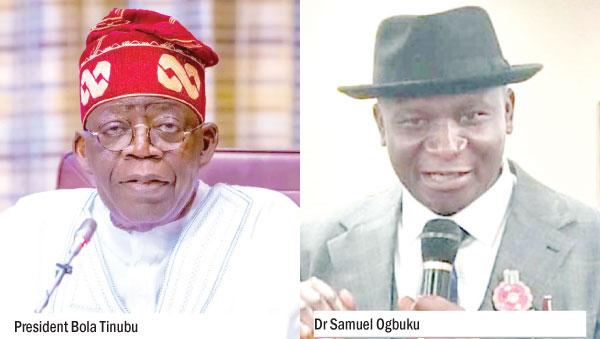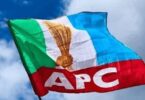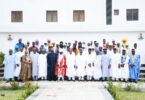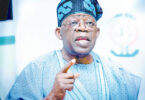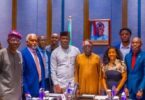In the bid to ensure an enabling environment, the Niger Delta Development Commission (NDDC), critical stakeholders of the oil-bearing region have come up with a 19-item agenda. AMAECHI OKONKWO examines the outcome vis-a-vis the deliberations that preceded the resolutions by the leaders.
THE Niger Delta remains a big cash cow for the country. With its immense crude oil deposits, the region has consolidated its prime position as the number one source of foreign revenue for national economic growth, development and sustenance, as well as stabilizing factor in the polity for decades. The federal government has had to embark on numerous interventions over the years following threats to this mainstream source of revenue of the country. One of such real interventions was the establishment of the Niger Delta Development Commission (NNDC), which had the mandate to complement other development efforts at creating a conducive environment in the region. So, for four days, the commission assembled stakeholders from the region in yet another summit aimed at taking stock of the various efforts designed as a game changer for the area. The event tagged: “Renewed Hope for Sustainable Development of the Niger Delta,” was convened, according to Chiedu Ebie, chairman of the board as “a crucial step in addressing the enduring challenges of the Niger Delta and pivoting us towards development that is sustainable.”
Before the coming of this current board, many had dismissed the NDDC as an unserious agency, which has been hijacked by politicians for other reasons than those for which it was established. Many had queried the need for the summit after hundreds of such held earlier under similar umbrella yielded little or no fruits at all.
But, the Managing Director of the NDDC, Dr Samuel Ogbuku explained that summit was a platform for the Niger Delta people to aggregate and evaluate how far the NDDC had performed under its current board and offer advice on the best way forward. He pledged the commitment of the current board of the commission to implementing decisions arrived at the summit saying that it was a demonstration that the region had gone beyond agitations in the streets to intellectual agitations. “What we are doing today is the labour of some of our founding fathers. In doing so, we should endeavour to manage what we have judiciously to justify our demands for more. We need to harness the successes and see how we can improve on them and also correct our mistakes. To achieve this, we need to do a wide consultation of the various critical stakeholders,” he stressed.
The three-day engagement, which was divided into technical session and closing ceremonies, came up with several issues pertaining to the sustainable development of the Niger Delta. For example, discussions at the technical session was dominated by a call for the release of over N2 trillion that accrued to the NDDC, which has not been remitted to the commission over the years. The stakeholders urged President Tinubu to release to the NDDC the over N2 trillion funding arrears owed the commission over the years. They insisted that the poor performance of the NDDC in the realisation of its core mandate of development of the Niger Delta region was partly due to funding challenges.
Chief Jasper Jumbo, chairman of the founding fathers of the defunct Oil Minerals Producing Areas Development Commission (OMPADEC) and the NDDC, were among the individuals that dissected the past and present scenarios. He decried a situation where the government would be owing the NDDC over N2 trillion of its funding after the region was forced to reduce the 15 suggested funding thematic areas to only eight. “You don’t expect these gentlemen you brought to run NDDC to run it with their heads. After reducing the 15 thematic areas of funding for NDDC to eight, why should the Federal Government owe the NDDC? I gathered that the government owes the commission over N2 trillion out of the statutory allocation to them,” Chief Jumbo stated. He even suggested that nothing was wrong with the government borrowing to fund the NDDC to meet up with its funding obligations.
He declared; “Tell the National Security Adviser (NSA) to tell the president, if you are borrowing money to execute projects in Nigeria, they should borrow money to pay NDDC the outstanding N2 trillion. Tell them that this is our position, they should go and get money and pay them this N2 trillion, let me see how Sam Ogbuku (NDDC MD) will have the money and not pay contractors or have the money and not give to the youths.
“That is the position of the fathers of the region. Secondly, the North East Commission is getting 3percent of VAT. I can’t see why the NDDC shouldn’t be getting similar 3percent VAT. Tell them that we are demanding as of right as one of the funding provisions of NDDC, they should give us 3 percent VAT. This is our position.”
Similarly, the national president of the Pan-Niger Delta Forum (PANDEF), Senator Emmanuel Essien identified funding challenges as one of the reasons the NDDC had not been able to achieve the ideals behind its establishment. He said: “I want to say that the ideals of that law establishing the NDDC have not been achieved partly because of underfunding and partly because of management issues, that is why I want to thank the present board and management on what they are doing to redeem that deficiency.
“And I want to tell the traditional rulers to tell the president to release all the outstanding money to NDDC, which is over N2 trillion. You cannot set up an agency and you not fund it, yet you expect it to do what it’s supposed to do. There are lots of issues in the Niger Delta region. The regional master plan cannot be implemented, which I was part of the design as the vice chairman of the NDDC committee in the Senate at that time.
“There were supposed to be regional projects for NDDC cutting across all the states of the region and that has not been achieved because of lack of funds. So I want to join the royal father to plead with Mr President, we are borrowing money to do other things, even if we have to borrow and refund the money to NDDC, we should borrow so that the NDDC can achieve its core mandate.”
Senator Essien also expressed the need for the review of the NDDC act to increase the funding sources of the interventionist agency. “I also want to say at this meeting that there is a need to review that NDDC act. There are other sources of money that have to be brought in through the act to enrich the purse of the NDDC. Also, the single treasury account TSA should not apply to the NDDC. They should have their money so that they can do what they are appointed. The TSA does not help NDDC to achieve its mandate,” he added.
In his paper at the summit, the NSA to the President, Nuhu Ribadu, said the Niger Delta should be clearly captured in a more active and determined way as a national security priority in the vision of President Bola Tinubu and his Renewed Hope Agenda. The NSA stated that within the president’s broader and long-term National Security vision, included moving internal security from the current strong posture from kinetic to non-kinetic operations. Ribadu said: “I will emphasise security from human and socio-economic development point of view to deepen democratic culture in the Niger Delta. In view of the above two central ideas, I am determined to set up, for the first time in the office of the NSA, a directorate that shall specialize in security of the Niger Delta through which we can, as stakeholders, take a critical look at the peculiar security challenges of the region in a focused and professional way. Accordingly, my team on Niger Delta (led by my Special Adviser on Energy Security and Niger Delta Affairs) is currently working closely with the governors of the region and the presidency. They will eventually include all stakeholders of the region. The NSA explained that the job would be to have very robust engagement to support the President articulate a comprehensive Presidential Policy on Niger Delta Security.
“We should expect that when that fully materialises, the president will most likely personally present policy guidance that will define his security management posture for the sustainable development of the Niger Delta, under the Renewed Hope Agenda.”
On his part, the president of the Senate, Godswill Akpabio, recalled that agitations by some stakeholders of the Niger Delta led to the non-completion, by the Buhari administration, of the East-West Road, which connects most of the states in the region.
Akpabio, who represented President Tinubu at the event, said the road project was stalled after it was transferred from the Ministry of Niger Delta to the Ministry of Works, on response to the request of some stakeholders in the region. He said: “On my part as a son of the Niger Delta, The East-West road would have been completed under my tenure as Minister of Niger Delta under the last administration, but some stakeholders particularly of Ogoni extraction, led a delegation to meet with the then President Mohammadu Buhari, to inform him that they did not want the Minister of Niger Delta to complete the road.” They wanted the road to be transferred to the Ministry of Works, at that time headed by my brother, former Governor Babatunde Fashola of Lagos State.
“The road at that time was then transferred to the Ministry of Works that had no budget that year for the East-West road. Even the N75 billion that we secured could not be used. I am saying it is Niger Delta people that sometimes bring down Niger Delta. This summit must resolve to abolish the syndrome of Pull Him Down. From the day the Ministry of the Niger Delta stepped out of that road, no progress has been made till today.”
Former President Goodluck Jonathan was blunt and frank in his submission on the prevalent situation in the region. Jonathan called on Niger Deltans to prepare their minds that the hydrocarbon being explored in the region would soon dry up. “We are here because we produce oil. Everybody know that fossil fuel, hydrocarbon, the future is so lean. It will dry up, just like the Oloibiri field dried up,” he said. Noting that the era of fossil fuels was already at a risk the former President said: “The global environmental policy is already planning for a world without hydrocarbon and so will stop and exploration of fossil fuel and so, Niger Deltans should begin to think about Niger Delta without hydrocarbon. We must prepare our youths and our children for a Niger Delta without hydrocarbon. There is so many ways to do it and I admire the competence of the key actors in NDDC. Let our youths be well educated and acquire skills so that they can work anywhere in the world.”
He observed that some of the major challenges of the NDDC included distraction by the political class which forced successive management teams of the commission to lose direction. Jonathan urged the Senate President, as a leading politician from the region to urge his fellow politicians to cease from putting the NDDC under unnecessary stress.
Addressing the summit, Chairman of the governing board of the Niger Delta Development Commission (NDDC), Mr Chiedu Ebie, who is a lawyer, said the stakeholders› summit is a testament of the commission›s commitment to vision of President Tinubu and the Minister of Niger Niger, Engineer. Abubakar Momoh.
Ebie stated that NDDC was dedicated to setting the Niger Delta region on the path of sustainability and growth. He said; «This gathering marks a crucial step in addressing the enduring challenges of the Niger Delta and pivoting it towards development that is sustainable. Our primary aim is to come together as leaders and key stakeholders from various sectors and ethnic nationalities to collaboratively develop and implement strategies for sustainable development of the region in line with our theme- Renewed Hope for the Sustainable Development Of the Niger Delta»
The keynote speaker at the summit was Professor Ehhosa Osaghae, who is the director general of the Nigerian Institute of International Affairs (NIIA). Victoria Island, Lagos, while the communiqué contained 19 points. These included the reactivation of the NNDC Advisory Committee with the mandate to advise and monitor the activities of the commission; that all funds due and outstanding to the commission from the statutory sources, including the Federal Government and ecological funded vigorously pursued and recovered and that additional sources of funding the NNDC such as at least three percent of Value Added Tax (VAT) revenue should be legislated. Among the other core decisions were that there should be holistic mediation across communities in the Niger Delta to avoid compromise on cleaned areas. Government should uphold the provisions of the Environmental Guidelines and Standards for the Petroleum Industry in Nigeria (EGASPIN) and enforce proper decommissioning of oil facilities.”
As the stakeholders and political leaders rose from what some of the eminent citizens described as an epochal summit, there were huge expectations across board on how far they could go in pushing through the resolutions with far-reaching implications and impact for the polity and governance in the country.
READ ALSO: Cross River govt recounts EndSars loss, warns against nationwide protest

